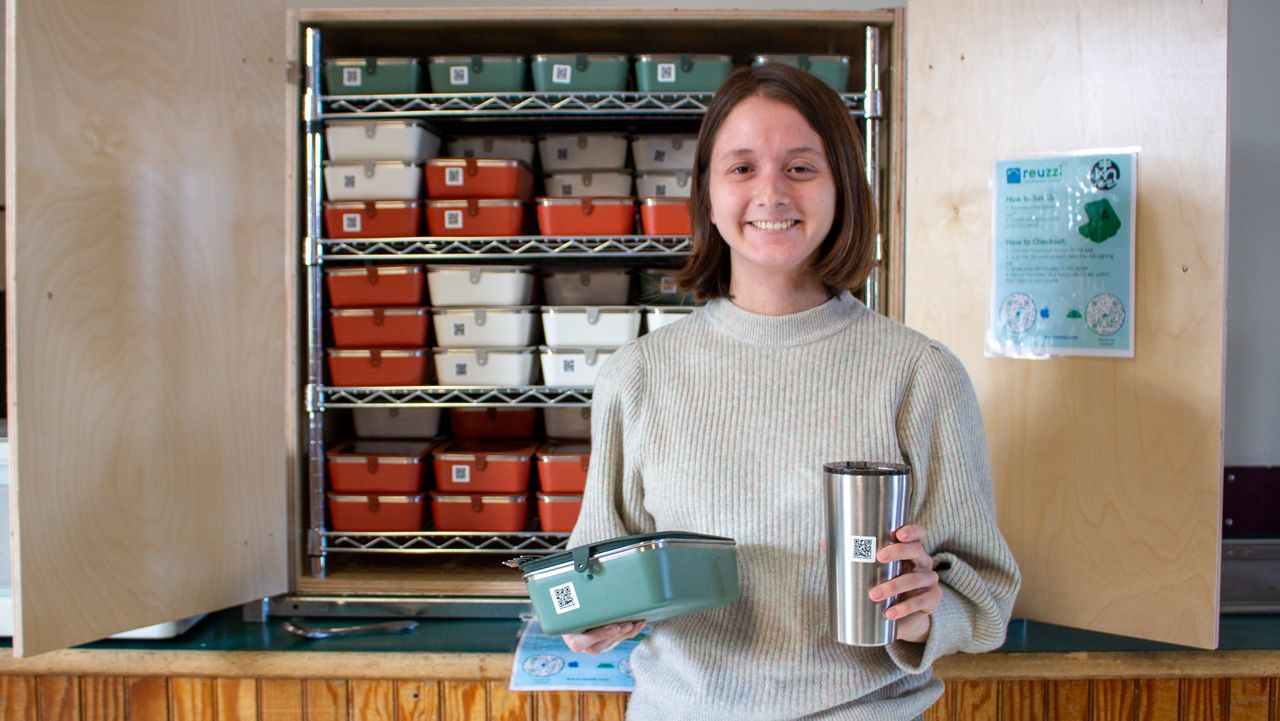BAR HARBOR — Bar Harbor’s College of the Atlantic will become the first campus in the country to eliminate disposable plastic food ware in their dining operations, according to the nonprofit Post-Landfill Action Network.
A reusable to-go program launching at the college this winter replaces single-use plastic with stainless steel containers, mugs and sporks.
By using an app, students can check out dishware the same way they would check out a library book to cut down on plastic waste.
“Single-use items in cafeterias seem like they’re not that much if you think about it on a one-day basis, but it really adds up over the year and if you multiply it by the number of students at a school it can become a lot of items,” said Linneah Goh, a College of the Atlantic student who designed the program as part of her fellowship with PLAN’s Atlas Zero Waste Project.
According to College of the Atlantic, the effort will keep over 50,000 pieces of plastic out of the waste stream.
“I think it’s really difficult for us as individual people to quantify how much plastic is actually out there, and I think that there’s been a lot of efforts focused on trying to remove it from the ocean, but I think it’s really important to stop it at the source and stop adding more to the ocean,” said Goh.
The school is partnering with the app Reuzzi to help make it happen.
“My hope from this is that other students from COA and from other schools will be able to learn from this experience and hopefully implement other sustainability related projects,” said Goh.
According to the college, the program is supported by grant funding from the Marine Debris Foundation.
The college was also the first to sign PLAN’s Break Free From Plastics Pledge in 2019, a commitment to eliminate all single-use disposable plastic.
According to College of the Atlantic, colleges and universities have been experimenting with implementing reusable to-go programs for a decade but have struggled with container retention rates and high replacement costs.
“I think a lot of people could look at this project think ‘oh they were just able to do it because [the College of the Atlantic] is small,’ [but] it’s really something that is scalable to other schools and will be really cost-effective in the long run if you’re able to invest in things that will last for a long time rather than continuously buying the same thing,” said Goh. “I think that I would like to see a lot of other schools take part in this, because if we all do it, it could be huge.”





